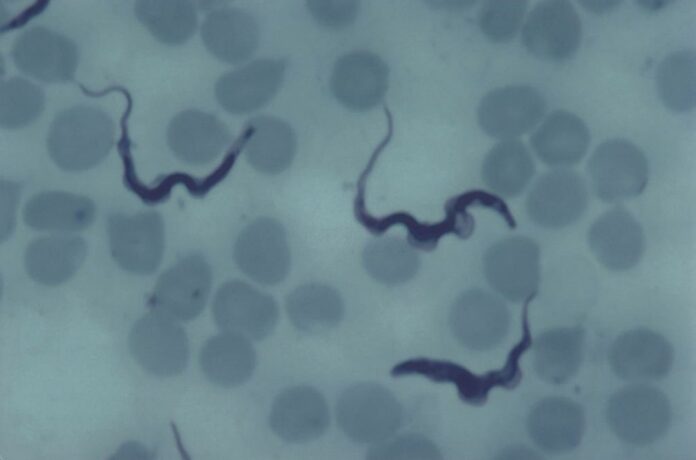Sleeping sickness, also known as human African trypanosomiasis (HAT), is a neglected tropical illness that may be lethal if left untreated.
Gambiense human African trypanosomiasis (g-HAT) is found in many countries in west and central Africa, but the Democratic Republic of the Congo has the most cases.
Before 2019, individuals in the early stages of the illness were treated with an injection once daily for seven or more days, and those in the latter stages of the disease were treated with an intravenous drip for seven days, requiring hospitalization.
The patients were also asked to have a spinal tap, which is a procedure in which fluid is extracted from the spine, in order to assess the stage of sleeping sickness and figure out the treatment that would be most effective.
In 2019, fexinidazole, a 10-day oral drug made by the Drugs for Neglected Diseases initiative (DNDi), became the first-line treatment for both stages of the disease. However, it still needs to be given by trained staff and is often given in a hospital.
Acoziborole, a medication developed by DNDi and Sanofi, is being tested in a new prospective research to see whether a single oral dosage is effective in treating g-HAT.
“Sleeping sickness threatens millions of people across sub-Saharan Africa. Many of the people at risk live in remote rural areas where there is little access to adequate health services, and where acoziborole has the potential to revolutionise treatment for sleeping sickness,” says lead author Dr. Antoine Tarral.
According to the author, it is given in a single dose and works at every stage of the disease. This removes many of the barriers that are currently in place for people who are most likely to get sick, such as invasive treatments and long distances to get to a hospital or clinic, and makes it possible to screen and treat at the village level.
A single 960 mg oral dosage of acoziborole was given to 208 patients throughout the trial, which included participants from 10 hospitals in the Democratic Republic of the Congo and Guinea. Of them, 167 patients had been diagnosed with late-stage HAT, while 41 with early- or intermediate-stage g-HAT. For 18 months, the patients were monitored to see if the therapy was effective.
The researchers discovered that 95% (159/167) of individuals with late-stage g-HAT who received acoziborole were cured following therapy (no trypanosomes, the microscopic parasites which cause g-HAT, were present in body fluids). 100% (41/41) of patients in the early and middle stages were effectively treated. Statistical analysis revealed that the outcomes were comparable to the 94% success rate seen with the prior HAT treatment, nifurtimox eflornithine combination therapy (NECT).
All of the occurrences were mild or moderate, and the percentage of adverse effects that were linked to the medication was low. In this investigation, no significant drug-related safety signals were found.
By 2030, the WHO aims to eliminate g-HAT by halting transmission.
Even though the number of cases is going down in Africa, this will be hard, and “we believe the use of acoziborole could be a crucial future tool in efforts to reach our common goal of elimination,” adds principal investigator Dr. Victor Kande Betu Kumeso.
The authors of the research recognize that it has numerous drawbacks, the most significant of which is the absence of a control group. Following guidance from the European Medicines Agency, the research was set up as a single arm experiment with no comparison or control arm since recruiting patients with g-HAT in clinical studies is difficult.
Due to the difficulties in enrolling individuals with HAT in clinical studies given the sharp reduction in occurrence, the sample size was based on the highest practicable enrollment within an acceptable period.
In order to gather more safety information, a double-blind trial is now being conducted to compare the effectiveness of acoziborole vs a placebo in cases that are serologically suspected but parasitologically unproven.
“Acoziborole combines all the desired qualities of a trypanocidal drug: well absorbed orally, long half-life, good penetration into the CNS, and few serious adverse effects,” comments Professor Jacques Pepin, University of Sherbrooke, Canada, who was not involved in the study.
“Purists will say that acoziborole has not been evaluated according to current standards because the study was not a randomised trial, there was no control group, and the number of participants was small.
“But these were difficult challenges to overcome, considering the drastic reduction in the number of patients with HAT and dispersion over a vast territory, particularly in the Democratic Republic of the Congo. For these reasons, the authors took a pragmatic approach instead. Acoziborole represents an extraordinary advancement in the treatment of this neglected disease and might be key to the interruption of HAT transmission.”
Source: PIIS1473-3099(22)00660-0
Image Credit: Getty
